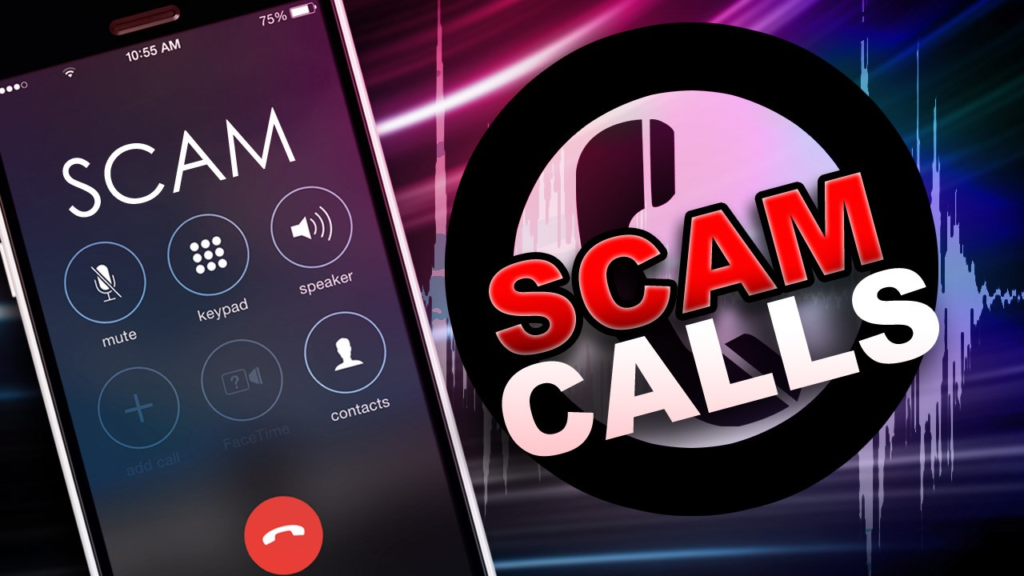Protect Yourself from the Increasing Threat of Scam Calls from 1-346-230-1697
In today’s digital world, scam calls have become a significant problem, affecting millions of people across the globe. Fraudulent callers use various tricks and advanced technology to manipulate their targets, resulting in identity theft, financial loss, and even emotional distress. One particular number, 1-346-230-1697, has recently emerged as a frequent source of scam calls. This article delves into the nature of scam calls, how scammers operate, and most importantly, how you can safeguard yourself from falling victim to this growing menace.
The Growing Epidemic of Scam Calls 1-346-230-1697
Scam calls are nothing new, but their frequency and sophistication have increased dramatically in recent years. One of the most alarming developments in scam calls is caller ID spoofing, a technique that enables fraudsters to disguise their phone numbers. With this tool, scammers can make it appear as though their call is coming from a familiar or trusted source, such as a local number, a reputable company, or even a government agency. The goal of this manipulation is simple: make the victim believe the call is legitimate, thus increasing the likelihood that they’ll answer.
A number like 1-346-230-1697 might show up on your caller ID, leading you to believe it’s a local call or from an organization you recognize. In reality, it could be a scammer attempting to extract personal or financial information from you. These deceptive tactics are incredibly effective, making it more important than ever to be cautious when answering calls from unfamiliar numbers.
How Scammers Operate and Why Their Calls Are Dangerous
When a scammer calls you from a number like 1-346-230 1697, their primary aim is to exploit your trust and gain access to sensitive information or money. They use several manipulative strategies to achieve this goal. Some common tactics include:
Creating a False Sense of Urgency
The scammers also apply pressure in its severest form by applying a time element to their work. They often claim that you need to take immediate action to prevent a financial loss or to avoid some kind of legal penalty. For instance, a scammer might tell you that your bank account has been compromised or that you owe taxes and must settle the issue immediately to avoid arrest or fines. This high-pressure situation encourages the victim to act without thinking clearly, which often leads to costly mistakes.
Impersonating Recognized Institutions
Many scammers use identity theft as a means of convincing victims to hand over their personal information. They may present themselves in any referring company, government agency, financial or any organization of your choice. Common impersonations include calling as representatives of the IRS, local utility companies, or even tech support for companies like Microsoft or Apple. Scammers may claim that there’s an issue with your account, or that your computer is infected with malware, and they offer to fix it remotely—provided you give them access to your device or pay for services.
Offering Fake Prizes or Deals 1-346-230-1697
A frequent scam involves telling the victim they’ve won a prize or sweepstakes, often an extravagant one like a car, vacation, or large cash sum. The scammer may then claim that in order to claim the prize, the victim needs to pay upfront taxes or processing fees. Naturally, there is no prize; it’s all a ploy to steal money or personal information. People who fall for this type of scam may even be asked to provide bank details or make a payment through gift cards, wire transfers, or other untraceable methods.
Fake Charity Appeals
In some cases, scammers pretend to represent charitable organizations, claiming they are raising funds for disaster relief, cancer research, or other causes that tug at the heartstrings. They may ask for donations over the phone and provide a sense of urgency, hoping the victim will feel pressured to contribute without verifying the legitimacy of the charity.
Why Are Scam Calls So Effective?
Scammers are highly skilled in manipulating human emotions. The reason they are so successful at tricking people is because they understand how to exploit natural human instincts such as fear, greed, and the desire to help others.
Lack of Awareness
Many people are not familiar with how scammers operate, which makes 1-346-230-1697 easier for them to be deceived. Fraudsters often go to great lengths to sound legitimate. They may use professional language, spoof phone numbers that appear local or familiar, and even claim to be calling from well-known companies or government offices. This makes it harder for the victim to recognize the warning signs of a scam.
Psychological Pressure
Scammers often play on people’s emotions to get them to act quickly. The fear of legal action, financial loss, or the desire to avoid punishment can push individuals into making hasty decisions. When faced with a threat of arrest or financial ruin, many victims will respond quickly without pausing to consider whether the call is legitimate.
The Allure of Freebies
Another effective tactic is the promise of a reward, such as a large sum of money or an exclusive offer. People are naturally drawn to opportunities that appear too good to miss. Scammers use this by offering “prizes” or “lottery winnings” to entice victims into giving away their personal information or paying an upfront fee. The idea of receiving something for nothing makes people let their guard down, which scammers exploit.
Inexperience with Technology
Not everyone is tech-savvy, and some individuals are not fully aware of modern communication tools like caller ID spoofing. Elderly people or those less familiar with technology are often the most vulnerable to these scams. They might not realize that the phone number displayed on their caller ID can be easily manipulated, leading them to trust fraudulent calls more than they should.
Types of Scams Linked to Numbers Like 1-346-230-1697
Scam calls from numbers such as 1-346-230 1697 are not limited to a single type of fraud. Here are some of the most common scams associated with such numbers:
IRS or Tax Scams
A very common scam involves fraudsters impersonating the IRS or tax authorities, claiming that you owe back taxes or that there’s a legal issue with your tax filings. The scammer may threaten legal action, such as arrest or wage garnishment, unless you make an immediate payment. These calls can be highly convincing, especially if the scammer knows certain details about your finances. They may ask for payment through wire transfers, gift cards, or other untraceable methods.
Technical Support Scams
In a technical support scam, the caller claims to be from a major tech company like Microsoft, Apple, or Google, informing you that there’s a problem with your computer or software. The scammer 1-346-230-1697 may offer to fix the problem remotely, but first, they’ll request access to your computer. Once they have control, they can install malware, steal your data, or demand payment for unnecessary services.

Prize or Sweepstakes Scams
Another common scam involves the caller informing you that you’ve won a large sum of money or a valuable prize. The scammer will claim that to collect your winnings, you must pay taxes or processing fees upfront. There is no prize, and the scammer is just after your money.
Debt Collection Scams
Debt collection scams typically involve fraudsters pretending to be debt collectors for loans, medical bills, or other financial obligations. They may demand immediate payment and threaten legal action if you don’t comply. These calls are often designed to instill fear and pressure victims into paying amounts they do not owe.
Recognizing Scam Calls from 1-346-230-1697
Identifying a scam call early can prevent significant damage.
Pressure Tactics
If the caller pressures you to take immediate action or threatens severe consequences like arrest or loss of assets, it’s a red flag. Legitimate companies and authorities will not use high-pressure tactics to get you to pay money on the spot.
Requests for Personal Information
Legitimate organizations will not ask for sensitive personal information, such as your Social Security number, bank account details, or credit card information, 1-346-230-1697 over the phone. Be suspicious if the caller asks for this type of data.
Unexpected Calls About Prizes or Deals
If you receive an unexpected call informing you that you’ve won a prize or sweepstakes, especially if you don’t recall entering, be cautious. These types of calls are almost always fraudulent.
Strange or Unprofessional Behavior
Scammers may behave in ways that seem strange or scripted. If the caller is evasive or avoids answering your questions, it’s likely a scam.
How to Protect Yourself from Scam Calls
Preventing scam calls from numbers like 1-346-230-1697 involves a combination of caution and proactive steps. Here’s how you can protect yourself:
Don’t Answer Unfamiliar Calls
If you don’t recognize the number, let it go to voicemail. Scammers often won’t leave a message, or their message will sound suspicious.
Block Scammer Numbers
Almost all of the existing models of contemporary smartphones offer the facility of number barring. If you notice frequent scam calls from 1-346-230-1697, block the number to prevent further contact.
Report Scams
Report scam calls to the Federal Trade Commission (FTC), your local consumer protection agency, or your phone provider. The more people or companies report scams, the easier it is for regulators to apprehend and close down such businesses.
Use Call Screening Apps
There are several apps available that can help identify or block scam calls. Apps like Truecaller and Nomorobo can help filter out spam and scam calls.
Educate Yourself and Others
Stay informed about the latest scams and educate your friends and family members, especially older adults, about potential threats.
Conclusion
Scammers using numbers like 1-346-230-1697 are becoming more sophisticated, but by staying alert and recognizing the signs of a scam, you can protect yourself from falling victim to their schemes. Being cautious, blocking suspicious numbers, and reporting scams can help protect not only yourself but also others from the devastating effects of fraud.
Scam calls, especially from numbers like 1-346-230 1697, are a growing concern. Scammers use a variety of tactics to trick people into divulging sensitive information or sending money. By recognizing the signs of a scam and taking proactive steps to protect yourself, you can avoid falling victim to these fraudulent schemes. Stay informed, remain cautious, and report any suspicious activity to help protect yourself and others from these scammers.
